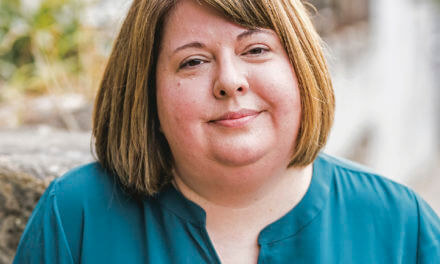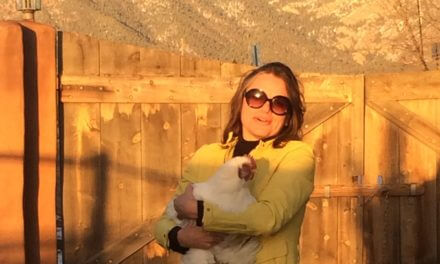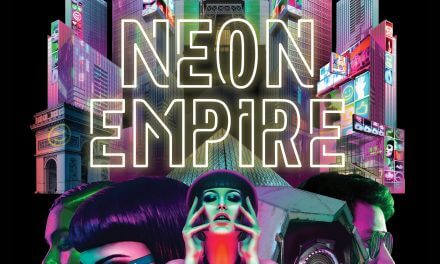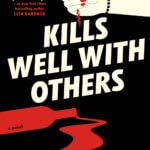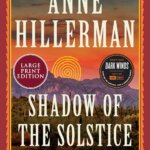Today I’m happy to introduce author and historian Deb Hunter. She writes as Hunter S. Jones. She is passionate about the history of romance, science and music, a.k.a. sex, drugs and rock & roll. She has been involved in academic projects at Harvard University, The University of Texas, UCLA, Vanderbilt University, University of The South, University of Notre Dame, the University of Tennessee, and the University of Edinburgh in Scotland. She publishes independently as well as through traditional platforms, and actively promotes the craft of historical writing through affiliation with many professional groups, including Society of Authors founded by Lord Tennyson, the Royal Historical Society, the Society of U.S. Intellectual History, the Atlanta Historical Society, the American Historical Association, the Organization of American Historians, Society of Civil War Historians, the Dangerous Women Project, Romance Writers of America (PAN member), and the Historical Writers Association. When she isn’t writing, talking or tweeting about kings, queens and rock stars, she lives in Midtown Atlanta with her Scottish-born husband.
NEWS FLASH: I’ll See You in My Dreams has resulted in four spin off time-travel dream stories which will be a modern day retelling of the Henry VIII, Anne Boleyn, and Jane Seymour story. The contracts are now complete, and this is the grand reveal to the world of that momentous occasion.
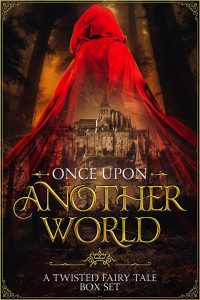
SS: Welcome, Deb. I hope you and your family are staying safe during the Covid-19 pandemic. Let’s get started with my questions. Writing is undoubtedly a lonely occupation. John Green (The Fault in Our Stars) says writing is a profession for introverts who want to tell you a story but don’t want to make eye contact while doing it. P. D. James (Cover Her Face) says it’s essential for writers to enjoy their own company. Do you see yourself along those lines? Are you a natural loner?
DH: Love this question. I’m very much an extrovert-extremely friendly and outgoing-but I’ve always been a writer. It would be interesting to see how many other authors are the same.
SS: Do you have a day job? If so, is it a distraction, or does it add another element to your writing?
DH: No, because of my illness and the treatments required, I can no longer work.
SS: When I read other authors’ biographies, mine seems dull by comparison. How do you feel about your life story? Have you ever been tempted to jazz yours up?
DH: My life is a whirlwind of activity & always has been. I’m pretty happy being me and there’s no need to jazz up anything.
SS: How long have you considered yourself a writer? Did you have any formal training, or is it something you learned as you went?
DH: I’ve been involved in writing projects since I was very young—high school things, studied Lit and writing as an undergrad, I wrote for a few rock rags, did an occasional article for a newspaper or magazine, that type of writer. Then in 2012 I started self-publishing and have also worked with a few publishers along the way.
SS: Do you generally write in one genre? If so, what is it? And what can readers expect from one of your books?
DH: Great question! I write whatever I feel like doing at the time. I done a few chats with my readers about maybe having a name change for different genres and they always say no—they like seeing what I’ll do next. I know people have favorite genres, but most people read more than one thing. Readers seem to enjoy variety.
SS: Regardless of genre, what are the elements that you think make a great novel? Do you consciously ensure all of these are in place?
DH: Another fun question! For me, it’s always about the characters. If your characters are developed, generally the storyline falls into place.
SS: What are you working on at the moment?
DH: Currently, I’m filming for an appearance at Tudorcon 2020 (https://www.englandcast.com/tudorcon2020), then I’ll be a participant Lady Kathryn’s Virtual Renaissance Faire (https://www.youtube.com/user/KateHoleman). After that, look for me to introduce Visiting Atlanta’s Past: Stories & More From Residents of Oakland Cemetery—a historical project between the Atlanta Chapter of the Women’s National Book Association and historic Oakland Cemetery. We’ll be doing a series of blogs and then a zoom on October 24th. One positive aspect of 2020 is the ability to bring people together virtually. I like the interaction and absolutely love group projects.
SS: Which non-literary piece of culture could you not imagine your life without?
DH: The internet.
SS: Amen to that, Deb. What epitaph would you want most to be written about you when it’s all said and done?
DH: Either, She Lived A Life, or She loved British men and French leather. *giggle* My husband is British, so …
SS: If you could write about anyone, fictional or nonfictional, who would you write about?
DH: Jackie Kennedy
SS: In what circle of Dante’s Inferno would you place the average Amazon reviewer?
DH: Reviews are necessary for writing development. If someone can’t take bad reviews they may need to change career paths. Amazon will probably develop its own circle of hell and make it available for home delivery soon. *giggle*
SS: I had to more than giggle at that, Deb–it was an LOL moment ;). When you are creating a story, do you avoid reading books in the same vein so as not to be influenced by others, or do you seek out all possible variations for maximum inspiration?
DH: When I’m writing, all focus centers on the story. No music, no convos, and the only books are the ones required for research.
SS: Do the parts of your story that move your readers most move you as well? Or does your special position as Creator give you a different ear for the highs and lows of the tale?
DH: It seems that the parts of the book that made me cry as I wrote them also make my readers cry. That is a feeling that is moving in itself—that as a writer, I’ve connected with others on an emotional level.
SS: What do you always want to talk about in interviews but never get to?
DH: Fashion. I absolutely love clothes, jewelry and especially nice bags—and shopping yet I rarely get to talk about any of these.
SS: How do you give back to the writing community?
DH: Any way they need!
SS: What would a fly on the wall see if he watched you while you are writing?
DH: Someone who forgot to brush her hair.
SS: Do you generally write in one genre? If so, what is it? And what can readers expect from one of your books?
DH: No, I write history and fiction. I like studying aspects of sexuality and the belief in the supernatural, so you’ll find those links in all my works.
SS: How do you create and construct distinctly individual supporting characters?
DH: I studied acting to learn how to build characters. Due to that I build a background study for each main and supporting character. That way I know so much about each one and writing their stories is fairly easy.
SS: In a recent interview, Richard Powers (The Echo Maker) said that he wants literature to be something other than it is today: “There was a time when our myths and legends and stories were about something greater than individual well-being. When the Cherokees lived here and told how the Smokies were formed, they said an enormous bird flapped its wings, and every time the wings touched the ground, they beat down a valley. We’ve just come so far down that path of thinking the use of a story is just for our private consumption, our private manufacture, the creation of internal meaning.” How do you react to that?
DH: Oh, I love this. The Cherokees are a fantastic example. They believed stories were not only to be told but that the ‘audience’ should feel and participate in the story.
SS: Do your books carry a message? If so, what would you say it is?
DH: The ongoing message would be that love is also possible in the most impossible of situations.
SS: What’s the first book you read that made you think, “I’ve got to write something like this someday!”
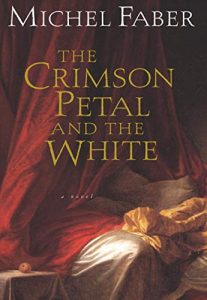
SS: Have any particular rejections inspired or motivated you?
DH: The best rejection EVER was from an agent who told me I wasn’t Southern enough. That cracked me up because I’ve lived in Tennessee and Georgia my entire life, so I’m not sure what exactly they meant with that statement but in was lol funny.
SS: In your novel, the 19th century seems ripe for picking, but what fascinates you about that era?
DH: The 19th century and the Victorian Era were such turning points in history, so many things happened that influence us today. I’m even more intrigued with the Tudor Era and found a way to entwine a link to it in I’ll See You In My Dreams.
SS: I feel the same way about the Gilded Age. Describe your books in 3 words:
DH: Time travel novel
SS: Favorite thing about your genre?
DH: You can go anywhere in time travel!
SS: When writing, are you a night owl or morning person?
DH: Night owl
SS: Pantser or Plotter?
DH: I start as a plotter then everything changes.
SS: Your favorite historical personage:
DH: Anne Boleyn
SS: Your favorite historical era:
DH: Tudor
********************
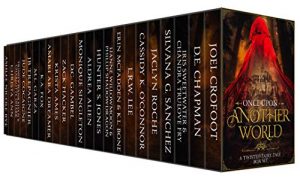
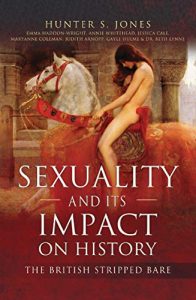
Universal purchase link for all platforms: http://books2read.com/u/3Raqxn
********************
An excerpt from I’ll See You in my Dreams:
Chattanooga, Tennessee
1873
A pale hand shone like ivory in the moonlight. She stood on the walkway that led to the train terminal. To anyone watching, she might have seemed like a statue, standing perfectly still, leaning against the polished railing. She was not something inanimate, cold and carved. She was a living woman, free from the constraints of society for the first time in her life. In her excitement to reach the station, she forgot to put on her gloves before leaving the carriage that delivered her. Shivering, she placed them on her hands and entered the building.
Music and the voices of a spirited crowd filled the depot. The sound was rhythmic, like water lapping against the bank of the Tennessee River. Above the glittering station, a clear, dark sky filled with stars sparkled like diamonds on velvet. She made wishes and the twinkling of the stars were their approval. She believed they were the answer to all her prayers. Her lips curved into a small smile as she imagined her mother saying, “Run! Get away from your father and his family. Be what I never could be.”
Maggie Ross raised her hand to her heaving chest, then to her lips to calm herself – she was skittish as a colt. She turned her head slightly, her long honey-colored curls brushing her back. Looking down at one of the steel tracks, she gave a small wave and smiled into the darkness, signaling goodbye to the life she left behind. Then she disappeared into the tumultuous train station.
Once inside, the young woman was delighted to hear loud music. She was sure that without it, everyone could hear the pounding of her heart. She clutched an elegant satin purse, beaded and embellished with blue silk ribbons. She reached in and touched a small book, running her fingers over the cover. What was inside had changed her forever – his words, which had opened her heart. He and his eloquently penned missives had worked a type of magic, opening a door to a land of enchantment, and she loved the secret world it revealed. She smiled as she thought of her self-absorbed cousin and was thankful that she would never again have to work as her servant.
Oh, how courtly were his words. So completely he had charmed her. She had carefully gathered his letters and bound them together with an old copy of Grimm’s Fairy Tales. They had given her the courage to dream. Suddenly, fear overwhelmed her. What if he no longer wanted her? What if she was too late? She could never go back, as she had done the unthinkable. The die was cast. Somewhere in the depot was conductor and chief engineer Fate Turnquist, the gentleman who had liberated her heart, body, and soul. The cars of the Western & Atlantic would leave soon, headed south to Atlanta. After that, she would go with him to Savannah, Charleston, maybe even New York. She had seized this opportunity for a chance at happiness away from the ghosts of Chattanooga.
********************
You can follow Deb / Hunter S. Jones here on social media:
Facebook | Twitter | Instagram | Pinterest | Goodreads | BookBub | Amazon
********************
This post contains Amazon Affiliate links. As an Amazon Associate, I earn a small amount from qualifying purchases.


